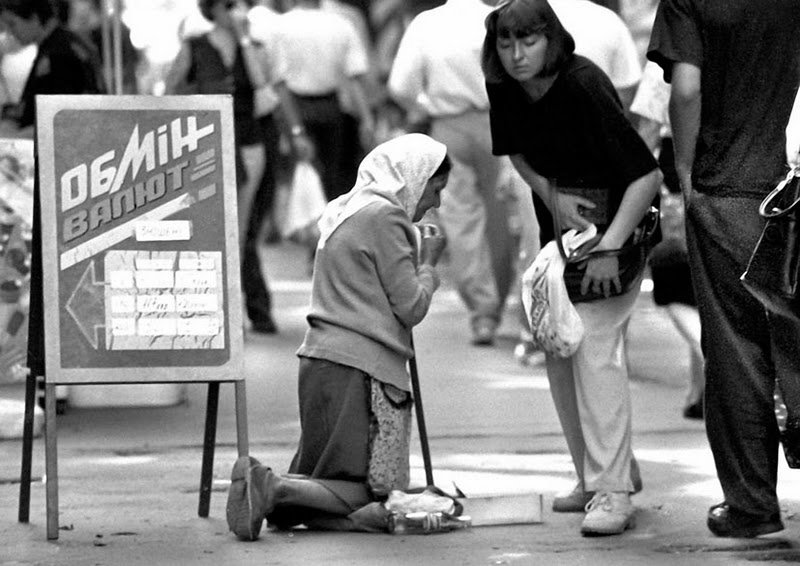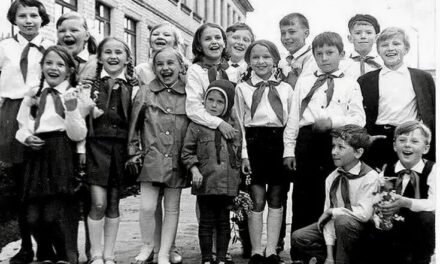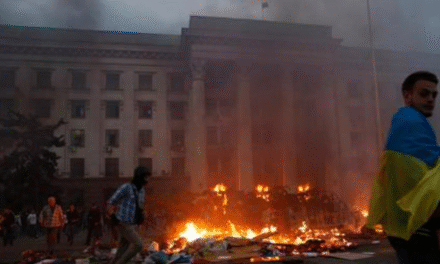When the Soviet Union collapsed in 1991, Danil’s world in the Nikolaev region of southern Ukraine changed almost overnight. The factories that had given his parents steady work stopped, wages were delayed for months, and sometimes families were paid not in money but in flour, sugar, or tinned goods. Shops emptied. People who once felt secure suddenly found themselves queuing for bread.
The Hardship of the 1990s
As a teenager, Danil saw the humiliation of poverty firsthand. Clothes became difficult to buy, and going to school without proper shoes or a clean uniform left him ashamed. “As a young boy, you want to look good,” he remembered. “But I couldn’t. Other children noticed. It pushed me into a kind of depression.”
For many families, including his own, survival meant improvisation. Parents and neighbors turned to the markets, selling whatever they could. Some traveled to Russia or Moldova, buying goods to resell at home. Others left Ukraine entirely to find seasonal work in Russia’s construction sites or factories. His own parents worked in Russia for years, sending money home to keep the family afloat.
But this patchwork survival had a cost: the community spirit of Soviet times began to fray. Neighbors still helped each other, but stress and hunger made people more suspicious, less trusting. Crime increased. Streets that once felt safe for children now carried the risk of theft or violence. “It became like a wild world,” Danil said. “People were nervous, angry. You had to watch your back.”
A Changing Ukraine
Alongside the economic collapse came a cultural one. The Ukrainian state, newly independent, began pushing the Ukrainian language in schools, universities, and official life. For Danil and many others in the south, this was disorienting. Russian had always been the natural language of home, street, and work. Ukrainian, though studied in school, felt unfamiliar and forced.
“Teachers themselves struggled,” Danil explained. “They had worked all their lives in Russian. Suddenly they had to teach in Ukrainian. They didn’t feel comfortable, and neither did we. It wasn’t our language.”
The new Ukraine also opened its doors to the West. American movies, advertising, and religious sects flooded in, promising a better life abroad. Danil was fascinated. Groups like Mormons or Baptists offered English lessons, food, and a sense of belonging. As a teenager who dreamed of helping his struggling mother, he was drawn to this vision of America as a land of abundance.
“I told my mother, ‘Don’t cry. I will grow up, go to the U.S., and send you money,’” he remembered. That dream drove him to teach himself English, working tirelessly until he became one of the best language students in his school and later at university.
Family and Community Under Strain
While Danil pursued his studies, his family endured constant instability. His mother traveled to Russia for work well into her retirement years. His father, too, spent years away earning money before passing away. Friends and neighbors survived however they could—some smuggled goods across borders, others grew food in villages, and many simply scraped by with nothing.
Children were not shielded from these struggles. Danil remembered classmates who had no proper clothes for school, no notebooks, sometimes not even enough food. “It was painful to look at them,” he said. “We were all poor, but some were poorer.”
The old community spirit of the Soviet years, built on shared trust and mutual support, was replaced by competition, survival, and disillusionment. The sense of belonging that had once united the region was gone.
Ukraine was now ripe for the picking.





